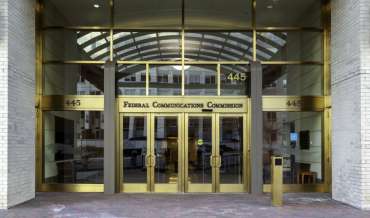Effective May 19, 2017 – The Soundboard Association (SBA) lost its battle to prevent implementation of the November 10, 2016 FTC Staff Opinion Letter to the telemarketing industry on avatar or "soundboard" technology. Calls using soundboard technology will now be subject to the same restrictions as other prerecorded "robocalls" under the Telemarketing Sales Rule (TSR).
The issue originated in 2008, when the FTC amended the TSR to include the prohibition on using pre-recorded messages for outbound telemarketing calls (“robocalls”) unless the recipient has provided the caller with prior written authorization. However, in 2009, the FTC publicly recognized the difference between impermissible “robocalls” and calls made using soundboard technology for the purpose of the TSR. In their opinion letter, they agreed that there was a sufficient distinction between soundboard technology’s use of live agents and the automatic pre-recorded messages that do not interact with consumers.
What is Soundboard Technology?
Soundboard technology uses a combination of live agents and prerecorded voice snippets.
Traditional “robocalls” play one-way messages without any human interaction. Soundboard technology, on the other hand, utilizes a two-way communication process in which sales agents selectively play pre-recorded messages in response to the consumer’s verbal responses over the phone. Even though soundboard technology still uses pre-recorded audio, human interaction is required.
Soundboard technology involves recording numerous scripted audio files which can later be selected and played by the telemarketer while interacting with the consumer. Usage of pre-recorded audio files allows telemarketers to respond to virtually any consumer’s question, statement, or request utilizing the technology, rather than having to rely on the call agent’s natural voice or regional accent.
A key feature of soundboard technology is that a live agent is always on the call listening to the consumer and selecting the most appropriate audio file response to keep the customer engaged. It’s that involvement by the live agent that differentiates it from the traditional automated “robocall” messaging platform. The distinction between soundboard-assisted telemarketing calls and “robocalls” lies at the heart of the SBA’s lawsuit.
The FTC Revokes Its 2009 Opinion
The problem for telemarketers began with the FTC’s 2016 Opinion Letter revoking its prior soundboard guidance. The decision for the reversal was based on their perception that soundboard technology was not being used properly by the telemarketing industry. The FTC staff’s main rationale was that soundboard calls do, in fact, use pre-recorded messages and are therefore subject to the TSR. Their written opinion left no doubt that that their reversal was motivated by “the increasing volume of consumer complaints, and the abuses we have seen since we issued the September 2009 letter”. As you will recall from our earlier blog posting on this issue, the 2016 letter allowed the telemarketing industry six months to adjust to the new interpretation, stating the new opinion would become effective on May 12, 2017.
In response, the Soundboard Association sued the FTC in January 2017. They’re complaint alleged:
- The reversal was unlawful because it didn’t follow the procedures required for agency rulemaking
- The position taken by the FTC was an unconstitutional restriction on free speech.
The Court issued its decision that the FTC did not need to utilize formal rulemaking prior to publishing its opinion because the agency merely updated its interpretation of the TSR’s limitation on “prerecorded messages” for charitable donations. On the second issue, the Court found that the new policy was content neutral and therefore not an unconstitutional restriction on speech.
The Ruling’s Effect on Telemarketing Industry
Enactment of the FTC’s revised interpretation of “prerecorded messages” does not make soundboard calls illegal, it merely subjects them to the same rules as “robocalls”. For example, companies can still use soundboard technology for marketing calls with proper prior consent.
The policy had originally been scheduled to take effect on May 12, but Judge Amit Mehta postponed the date by a week to determine if an even longer stay was warranted after his April 2017 ruling against the Soundboard Association's lawsuit challenging this FTC's new stance on the technology.
The FTC’s 2016 Opinion Letter still allows for soundboard technology, but users must now prepare for TSR regulation that consider soundboard calls as pre-recorded messages beginning May 19, 2017. Companies using soundboard technology should carefully review the TSR, stay apprised of developments in the Soundboard Association’s appeal, and seek legal advice regarding any compliance questions.





